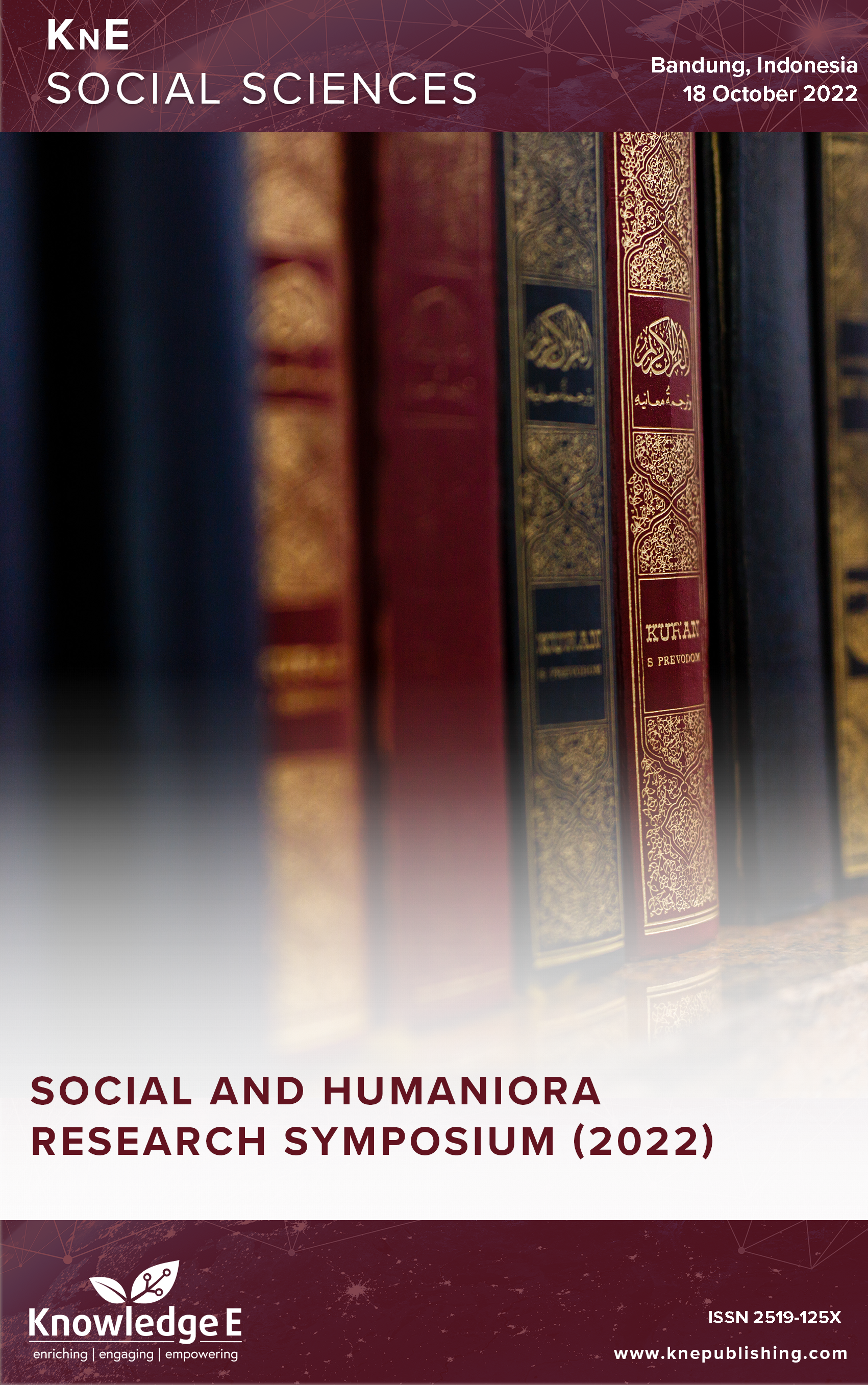Customer Service Training for Al-Hadi Vocational High School Students in the Framework of Improving Maqashid Syariah-based Competence
DOI:
https://doi.org/10.18502/kss.v8i18.14334Abstract
Maqāsid al-Syar’ah needed a restoration that can be done by fixing thoughts that are increasing. In achieving the vision of Al-Hadi Vocational School, it is necessary to increase the competence of students majoring in Islamic banking with customer service occupations. Based on the results of discussions with the Al-Hadi Vocational School, the identification of the problems that currently arise is that there are no special subjects in Customer Service, so there needs to be an interesting learning strategy for students; the absorption capacity of graduates of SMK Al-Hadi students is still limited. The purpose of this study was to conduct training for students of SMK Al-Hadi to help improve Maqashid Sharia-based competencies in students. The activity that will be carried out is the transformation of knowledge in the form of training. The training participants will be given a debriefing related to CSR that is adapted to the Maqhasid Syariah. The use of innovation indicators in the CSR KSPPS are competency tests, product innovations, processes, positions, and paradigms that will facilitate the training and mentoring process. The results of this training are providing training on the orientation/introduction of Sharia contracts for financing and financing transactions following Maqashid Syari’ah; providing training or orientation about cooperatives and providing training on how to deal with funding and financing customers. The customer service training provided is also in the form of basic operational concepts of KSPPS financial institutions based on Maqashid Syariah and the basic concepts of the customer service process at KSPPS Financial Institutions.
Keywords: competency, Maqashid Sharia, student
References
[2] Menteri Tenaga Kerjaan Dan Transmigrasi Ri. Keputusan Menteri Tenaga Kerjaan Dan Transmigrasi Ri Nomor 193 Tahun 2017 Tentang Penetapan Standar Kompetensi Nasional Indonesia Kategori Aktivitas Jasa Keuangan. Bukan Asuransi Dan Dan Pensiun, Bidang Koperasi Simpan Pinjam Dan Pembiayaan Syariah/ Unit; 2017.
[3] Mentri Koperasi Dan Usaha Kecil Dan Menengah, Peraturan Mentri Koperasi Dan Usaha Kecil Dan Menengah Republik Indonesia Nomor 12 Tahun 2018 Tentang Kualifikasi Nasional Indonesia Bidang Pengelola Koperasi Simpan Pinjam Dan Pembiayaan Syariah/Unit Si. 2018, Pp. 1–67.
[4] Oladapo, “Re-Counting The Determinant Factors Of Human Development: A Review Of The Literature,” Humanomics, 2016, Doi: Https://Doi.Org/10.1108/H-02-2016-0018
[5] Smk Al-Hadi. Profil Smk Al-Hadi. Smkalhadi.Sch.Id; 2016.
[6] Sarifudin DP. Pengaruh Capacity Building Terhadap Kinerja Karyawan Dengan Kompetensi Sebagai Variabel Moderasi (Studi Kasus Pegadaian Syariah Wilayah Yogyakarta Dan Sekitarnya)1 Sarifudin. Nusant J Ilmu Pengetah Sos. 2021;8(3):144– 157.
[7] Labola YA. “Konsep Pengembangan Sumber Daya Manusia Berbasis Kompetensi, Bakat Dan Ketahanan Dalam Organisasi.” J Manaj Dan Kewirausahaan. 2019;7(1):28– 35.
[8] Arfah SR. Pengaruh Capacity Building Terhadap Kinerja Skpd Pemerintah Kota Makassar. J Adm Negara 2018;24(2):115–126.
[9] Sugiyarto S, Ali M. “The influence of pedagogic and professional ability of the teachers competency exam results.” In Proceedings Of The Social And Humaniora Research Symposium (Sores 2018), Paris, France: Atlantis Press, 2019. Doi: https://doi.org/10.2991/sores-18.2019.83.
[10] Meilani LA. Kompetensi Sumber Daya Manusia Islam Pada Bank Syariah. Khazanah Sos. 2020;2(1):25–30.
[11] Ghulam Z. Implementasi Maqashid Syariah Dalam Koperasi Syariah. Iqtishoduna. 2016;7(1):90–112.
[12] Sa’diyah M, Gumilar AG, Susilo E. “Uji Maqashid Syariah Perbankan Syariah Di Indonesia.” J Ilm Ekon Islam. 2021;7(1):373.
[13] Febriadi SR. Aplikasi Maqashid Syariah Dalam Bidang Perbankan Syariah. Amwaluna J. Ekon. Dan Keuang. Syariah. 2017;1(2):231–245.
[14] Yusdiansyah E, Hendar J. “Islamic corporate social responsibility in the company of Sharia in Indonesia with the implementation of Maqashid Sharia.” In 4th Social And Humanities Research Symposium (Sores 2021), 2022. Doi: https://doi.org/10.2991/assehr.k.220407.069
[15] Surahman M, Nurrohman N. Analysis of Maqâshid Al-Syarȋ’ah on the application of the collateral in the Mudhȃrabah contract in Sharia financial institutions. Amwaluna J Ekon Dan Keuang Syariah. 2020;4(2):276–287.
[16] Ukkas I. “Pengembangan Sdm Berbasis Pelatihan Keterampilan Dan Perberdayaan Pemuda,” In Prosiding Seminar Nasional Issn 2443-1109 Volume, 2016, p. 120–125.
[17] Rohmah F. Nurruli, “Pelatihan Dan Pengembangan Sumber Saya Manusia”. J Manaj Pendidik Islam 2018;2(1):1–11.
[18] Hadi N. “Maqashid Koperasi Syariah,” I-Economics A Res. J Islam Econ. 2019;4(2):159–179.
Published
How to Cite
Issue
Section
License
Copyright (c) 2023 KnE Social Sciences

This work is licensed under a Creative Commons Attribution 4.0 International License.

